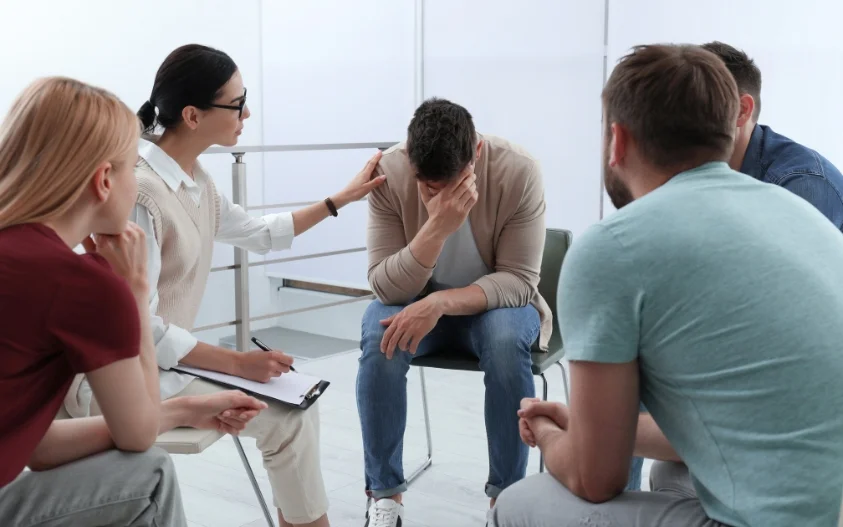24/7 Helpline:
(866) 899-111424/7 Helpline:
(866) 899-1114
Learn more about PTSD Treatment centers in Oologah

Other Insurance Options

Absolute Total Care

Coventry Health Care

Medical Mutual of Ohio

Highmark

Carleon

MVP Healthcare

Holman Group

Group Health Incorporated

Regence

Sliding scale payment assistance

Health Choice

Ambetter

Kaiser Permanente

Multiplan

BlueCross

BlueShield

Providence

Lucent

PHCS Network

Magellan







Peak Wellness Center – Laramie County Center – Adult
Peak Wellness Center – Laramie County Center – Adult is a private rehab located in Cheyenne, Wyoming...

Recover Wyoming
Recover Wyoming stands as a reputable substance abuse treatment center in Cheyenne, Wyoming for indi...

Cheyenne Regional Medical Center – Behavioral Health
Cheyenne Regional Medical Center offers treatment for behavioral issues in a supportive and effectiv...








































West Centers
West Centers is a private rehab located in Sweetwater, Texas. West Centers specializes in the treatm...

Bicycle Health – Wyoming
Bicycle Health - Wyoming is an online Medication Assisted Treatment Program. Bicycle Health - Wyomin...

Lifeplan Safe Place Programs
Lifeplan Safe Place Programs is a private rehab located in Cheyenne, Wyoming. Lifeplan Safe Place Pr...

Peak Wellness Center – Laramie County Psychiatric Services – Adults
Peak Wellness Center – Laramie County Psychiatric Services – Adults is a private rehab located in Ch...

Peak Wellness Center
Peak Wellness is a private, non-profit counseling center offering high quality, affordable counselin...

Client Assistance Program
Client Assistance Program is a private rehab located in Cheyenne, Wyoming. Client Assistance Program...

CoreCivic – Cheyenne Transitional Center
CoreCivic - Cheyenne Transitional Center is a 126-bed residential adult co-ed halfway house. CoreCiv...

Pathfinder
Cheyenne Community Drug Abuse Treatment Council, Inc. (Pathfider) is a private non-profit drug abuse...

Peak Wellness Center – Haven
Peak Wellness Center – Haven is a public rehab located in Cheyenne, Wyoming. Peak Wellness Center – ...

Foundations Counseling and Consulting of Wyoming
Foundations Counseling and Consulting of Wyoming offers outpatient treatment for individuals with al...

Peak Wellness Center – Transitions and Alcohol Receiving Center
Peak Wellness Center – Transitions and Alcohol Receiving Center is a private rehab located in Cheyen...

AA – Alcoholics Anonymous
AA – Alcoholics Anonymous is a non-profit rehab located in Cheyenne, Wyoming. AA – Alcoholics Anonym...







